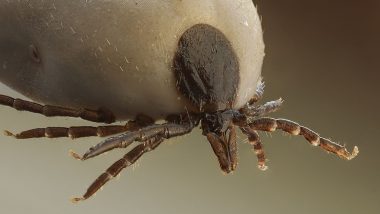Three people from Gujarat, last week, died suffering from symptoms such as fever, headache, diarrhoea and haemorrhaging. The National Institute of Virology (NIV) has confirmed that the three who succumbed had contracted Congo Fever. Seven have been confirmed out of the 49 suspected cases, out of which three had already died. Cattle have also been found positive for CCHF, according to a report in DNA. The findings don’t bode well because Congo Fever or Crimean-Congo Haemorrhagic Fever has a high fatality rate of 40 percent. Even worse, there’s no vaccine available for people or animals. Here’s everything you need to know – symptoms, causes and treatment – about Congo Fever. Monkey Fever On The Rise: What is Kyasanur Forest Disease (KFD)? Symptoms, Causes, Treatment and Prevention.
What is Congo Fever?
Crimean-Congo Haemorrhagic Fever is a viral disease caused by the bite of ticks belonging to the Bunyaviridae family. According to the World Health Organization, the fever has a case fatality rate between 10 and 40 percent.
WHO states that the disease is endemic in areas like Africa, the Balkans, the Middle East Asian countries south of the 50th parallel north.
What are Its Causes and How Does It Spread?
CCHF infects wild and domestic animals such as cattle, sheep and goat. They get infected when ticks carrying the virus bites them. Humans who work in the livestock industry, like animal farms or abattoirs, become vulnerable to the disease after coming in contact with the tissues and blood of the infected animal. How to Prevent Zoonotic Diseases Like Rabies, Nipah Virus Infection and Leptospirosis.
Human-to-human transmissions happen when people come in close contact with blood and other bodily secretions of infected people. Most of the transmissions happen in hospitals.
What are the Symptoms of Congo Fever?
Symptoms start showing between one and thirteen days, depending on the mode of infection. If the person gets infected with a tick bite, the incubation period of the virus is one-three days. If the person gets infected after coming in contact with tainted blood, the symptoms start showing between five and six days. Here are some of the signs of the fever:
- Fever
- Muscle ache
- Neck pain
- Dizziness
- Stiffness of the neck
- Backache
- Headache
- Sore eyes
- Sensitivity to light
- Nausea
- Vomiting
- Diarrhoea
- Abdominal pain
- Sore throat
- Mood swings
- Confusion
- Agitation
- Sleepiness
- Depression
- Stomach ache in the upper right side
- Liver enlargement
- Fast heart rate
- Bleeding under the skin
- Hepatitis
- Liver failure
How is Congo Fever Diagnosed?
CCHF or Congo fever needs to be diagnosed through different laboratory tests. These include:
- ELISA or enzyme-linked immunosorbent assay
- Antigen detection
- Cell culture test to isolate the virus
- RT-PCR or Reverse Transcriptase Polymerase Chain Reaction
- Serum neutralisation
How is Congo Fever Treated?
There exists neither a treatment nor a vaccine for Congo fever. Managing the symptoms of the disease is the only way to treat it. Supportive care is the main approach. Ribavirin drug has been used to treat CCHF infection – with both oral and intravenous formulations.
Preventing and Controlling Congo Fever
It’s difficult to control or prevent the fever because tick bites in animals generally go unnoticed. Furthermore, there are many vectors for ticks. Tracking and controlling them becomes logistically difficult.
To prevent human infection, the following precautions can be followed:
- Wearing full-sleeved, ankle-length clothes
- Wearing light-coloured clothing to detect ticks on clothes
- Using tick-killing formulations on clothes to repel them
- Regularly examining the body for tick bites
- Avoiding areas where there are ticks
- Reducing animal-to-human transmission by wearing gloves while handling livestock
- Enforcing hygiene protocol at slaughterhouses and abattoirs
- Avoiding physical contact with people with CCHF
With no vaccine or treatment in sight, prevention, although difficult, is the only option to combat Congo fever. If you work closely with animals or have come in contact with a person who suffered from symptoms of the fever, it's imperative that you visit the doctor at the earliest.
(The above story first appeared on LatestLY on Sep 03, 2019 02:45 PM IST. For more news and updates on politics, world, sports, entertainment and lifestyle, log on to our website latestly.com).













 Quickly
Quickly




















